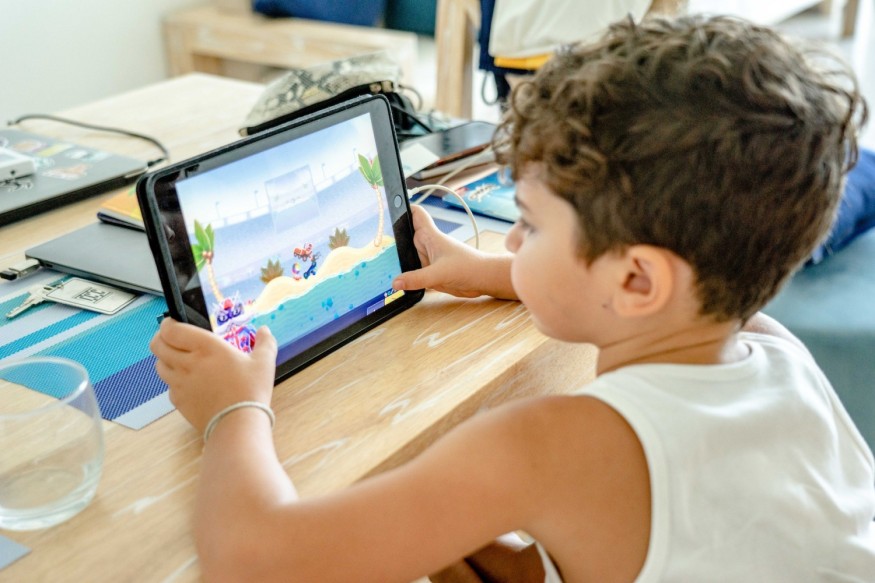
With the ever-increasing importance of digital literacy in education, there is no question that today's up-and-coming generations are some of the most digitally literate individuals of all time. Historically, early education has focused on outdoor and shared play. But now, in our digital age, we are seeing a shift. Our gravitation toward the inclusion of digital play in early education is becoming more and more apparent. This is affecting how early educators conduct their roles and the tools they use to educate their young students. How digital education tools are being utilised by early educators is highlighted in this article, as well as how early education careers are changing and evolving in line with the digitalisation of education. So, how have early education careers shifted in the digital age? To learn more, just read on.
Staying up to date With Your Educational Career: How to Keep Abreast of Digital Advances in Early Education
There is no doubt that in our digital age, digital technology is playing an increasing role in the delivery of early education to young children. But how to keep abreast of such changes? Naturally, the best way to stay up to date with these advancements is through education. Of course, it is always important for any professional to keep in the loop of the latest updates, findings and progress within their fields. This fact is just as important for early educators. Indeed, early education methods are changing rapidly with the rise of digitalisation, and educational staff must be on board with this.
As such, to stay in the know, it is recommended that early educators always endeavour to continually learn and educate themselves about the current and up-and-coming digital advances in their field. To do this, early educators should pursue higher education. Undertaking a Masters in Early Childhood Education, for instance, is an ideal way to ensure that an educator is updating, developing and refreshing their existing knowledge and skills. It is also a great way to build on their existing professional experience. It will also help the early educator to remain competitive in their career.
Importantly, by undertaking this particular master's degree, an educational professional can expect to learn advanced skills in delivering early education, leadership skills, and how to develop educational curriculums, as well as learn the methodology behind education systems. It will also enable them to stay abreast of how early childhood education is evolving in line with current advances in the digital world.
Accepting Digitisation: Incorporation of Digital Tools into Early Education

The up-and-coming generations of young children are more digitally savvy than any generation before them. Often referred to as Digital Natives, this generation of children has had very early exposure to digital technology. Growing up constantly exposed to computers, smartphones, and the internet, these little ones are completely used to having constant access to digitalised forms of play and education. As such, early educators need to incorporate digital engagement methods in their educational curriculums. This will also keep the curriculum fresh, modern and engaging for young digital natives, who may become bored with more traditional methods of education!
Let's be honest; young children are already environmentally exposed to digital technology. How often do we see toddlers as young as two years old engrossed in an iPad game while their parents take them shopping? Or, engaging in an interactive video on their mother's smartphone at breakfast in their local cafe? It must be said that, frankly, there is no escaping digitalisation in the lives of young people today.
New Tools: Digital Play and Digital Literacy in Early Education

It is important that we not only accept digitalisation in early education, but we must also embrace it. By doing this, we ensure that early education stays modern, fresh, and connected with our current digital reality. This can be done by encouraging digital play rather than rejecting it, by introducing digital games into the educational curriculum alongside more traditional methods of education. For example, digital tools such as smartphones, iPads, and even digital whiteboards, can be used to deliver educational content and material in a way that is both engaging and entertaining for young students. This way, young digital natives learn early on in life how to navigate digital technology.
It also prepares them to enter into a world that is increasingly dependent on this technology to function. Indeed, digitalisation is something that is here to stay. By accepting this, and by teaching our children to be comfortable and at ease with using digital tools, we give them the best chance at succeeding later in life.
Pros and Cons: What are the Benefits and Negative Aspects of Digitalising Education?
Of course, digitalisation has pros and cons. Traditionalists may say that our dependence on digital tools is a negative aspect, that takes away from our connectedness with outdoor play in nature. However, it can also be argued that we need to embrace digital tools and teach our children how to use them. The benefits of digital tools in education are great. For example, digital technology in education aids in cognitive development, as well as the development of fine motor skills, and also, in processing more complex information. Further, exposing young children to digital tools also aids in preparing them for school readiness. Inevitably, children will be exposed to digital lessons in their school classrooms when they move on from early childcare. There is no reason not to give them a head start, and prepare them for this digital exposure early on.
By encouraging early exposure to digital tools and incorporating them into early education methods, we give our children a fighting chance to succeed in our increasingly digitalised world. As mentioned, early digital exposure can also promote school readiness. Indeed, most classrooms around the world now rely heavily on digital technology to conduct their lessons.
School curriculums are also greatly impacted by increasing digitalisation, with exposure to digital education tools being a necessary fact of daily life in our digital age. Of course, learning how to balance digitalisation with traditional education methods is also important. Early educators need to stay abreast of this and ensure that they remain educated and in the know of the digital advances in their industry, through the pursuit of higher education and qualifications.
© 2025 ScienceTimes.com All rights reserved. Do not reproduce without permission. The window to the world of Science Times.












